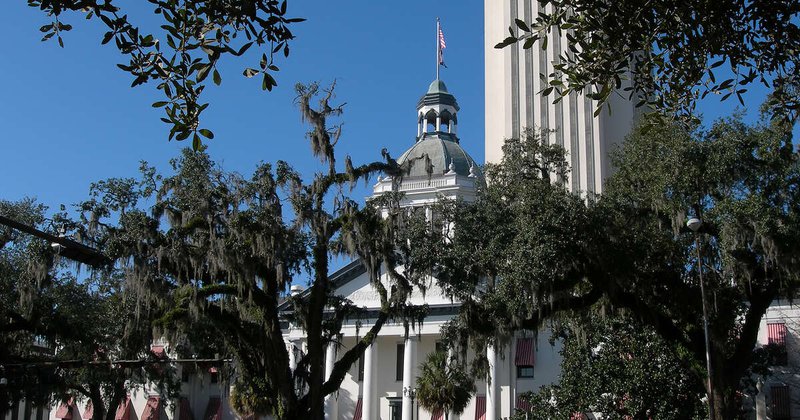Florida Courts Split on Whether Texts Qualify as Calls
Discover how recent Supreme Court rulings have reshaped the TCPA litigation landscape, creating divergent interpretations in Florida's federal courts. Learn how these changes impact text message marketing compliance and what businesses can do to navigate this evolving legal environment.
Florida Courts Split on Whether Texts Qualify as Calls
Our previous article discussed the profound implications of the Supreme Court’s recent rulings in Loper Bright Enterprises v. Raimondo and McLaughlin Chiropractic Associates v. McKesson Corp. Essentially, those two cases completely rewrote the TCPA litigation playbook by allowing courts to cast aside longstanding FCC interpretations of the TCPA in favor of applying ordinary principles of statutory interpretation.
Before these seminal rulings, litigants in TCPA cases had to contend with the FCC’s consumer-friendly, often convoluted interpretations of the TCPA, which courts were required to accept as controlling in most instances under the doctrine of Chevron deference. Thus, for better or worse, courts in different jurisdictions were likely to come to the same conclusion when considering the same issue under similar circumstances.
In the post-McLaughlin era, however, a federal court in one district might reach the opposite conclusion as a court in a neighboring district. Such was recently the case in Florida, where a court in the Northern District recently held that texts do not qualify as “calls” for DNC purposes, while a court in the Southern District of Florida just ruled that they do.
A Study in Contrasting TCPA Interpretations
On August 26th in Davis v. CVS Pharmacy, Inc. the Northern District of Florida took a restrictive textual interpretation approach to the TCPA. The court’s plain language analysis of Section 227(c)(5) led it to conclude that texts do not qualify as “calls” as far as DNC claims are concerned.
However, less than a month later on Sept. 19th, the Southern District of Florida took a more plaintiff-friendly approach to TCPA text message coverage in Blosley v. A Bradley Hospitality. In that case, the court affirmed that text messages constitute "calls" under the TCPA, despite the fact that its neighboring district held otherwise just a few weeks previously.
The core difference between the two rulings lies in the interpretive approach adopted by each court. The Southern District in Blosley chose to accept the established FCC interpretation treating texts as calls under TCPA, while the Northern District in Davis applied a post-McLaughlin plain meaning interpretation, rejecting any deference to the FCC’s position on the matter.
The Blosley case is also notable for the defendant's creative but unsuccessful interpretation of the plaintiff's "No stop" response to its marketing texts, arguing that the term “No stop" in response to promotional messages this should be read as "don't stop" rather than "no, stop," and therefore constituted affirmative consent to continue receiving messages, an argument the court firmly rejected.

Practical Impact on DNC Compliance
This split creates a geographic compliance puzzle within Florida, in which text messages sent to DNC-registered numbers in the Miami region may violate the TCPA, and messages sent to DNC numbers in the Tallahassee region may not.
For businesses directing text marketing campaigns to Florida numbers, the safest course of action is to apply the restrictive interpretation adopted by the Southern District as the baseline and treat all texts to DNC-listed numbers as potential TCPA violations statewide. Before relying on the Northern District’s interpretation, work with experienced TCPA counsel to evaluate whether a different approach might be defensible in the area being targeted.
Going forward, companies should track whether either case is appealed to the Eleventh Circuit and keep an eye out for similar splits emerging in other federal circuits, because the Florida split represents more than just a technical legal disagreement—it signals a fundamental shift toward judicial unpredictability in TCPA enforcement.
These decisions highlight the evolving TCPA landscape in the post-McLaughlin era, where courts increasingly apply independent statutory interpretation rather than deferring to FCC guidance. The split between Florida's federal districts exemplifies the broader uncertainty facing text message marketers and suggests that definitive resolution will likely require appellate intervention or congressional clarification.
And this Florida split is likely just the beginning. As more federal courts embrace their post-McLaughlin freedom to independently interpret TCPA provisions, businesses should expect additional circuit splits on key TCPA questions, and greater regional variation in TCPA enforcement.
Eventually, the Supreme Court or Congress will step in to provide some clarity, but in the meantime, text message marketers must navigate this uncertain landscape by implementing robust compliance programs that account for the most restrictive possible interpretations while monitoring ongoing legal developments that could provide greater clarity—or create additional complications.




